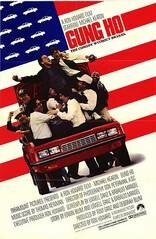 In the beginning there was Mercata and the promise of discounts from group buying. And there was also ActBig, Zwirl, and C-Tribe. And the market liketh them not. Mercata was laid low in 2001, although its intellectual property would live on.
In the beginning there was Mercata and the promise of discounts from group buying. And there was also ActBig, Zwirl, and C-Tribe. And the market liketh them not. Mercata was laid low in 2001, although its intellectual property would live on.
Today, a new generation of group and social buying sites have sprung up: Groupon, Living Social. And, since it's the Internet, a second (or third) generation. Seattle is home to Tippr, Wrazz, and DealPop. Chicago has YouSwoop. Buywithme is expanding. Whither Groop Swoop, SwoopOff, SocialBuy? One can only wonder.
The largest have millions of subscribers, across the country; the bulk are just starting out, and working a geographic niche furiously, advertising themselves as the way to connect with your city. The shared, cloying cuteness of Internet naming conventions aside, the clock is also ticking for all these second-generation companies as they try to define themselves for customers.
TechFlash already sat down with Tippr for a differentiation chat: They see themselves as a collaborative, deal-delivering platform, less tied to brand recognition than Groupon. We knocked on DealPop's door to see what they were all about.
[Full disclosure: DealPop is a SunBreak advertiser and you should probably subscribe to their email alert service right now. Upper right-hand corner there. Do it.]
Right away what sets DealPop apart is that their downtown Seattle offices are the home of WhitePages.com. Alex Algard founded WhitePages in 1996 in his Stanford dorm room, stealing a march on Baby Bells and their printed phone books everywhere, and today the company has 200 million personal listings and 15 million businesses, with over 20 million monthly unique users. They're now incorporating Twitter and Facebook results into their people searches. They have a top 10 iPhone app....
Seattle is "ready for take-off," ranking just behind Austin, TX, on Kiplinger's "Best Cities for the Next Decade" list, which gives points for innovative thinking. Topeka, KS, was tenth. Portland didn't make the list. Kiplinger's is a personal finance and business magazine that apparently needs the kind of publicity that running a Top 10 list will bring you. (Just like we're the kind of magazine that reports on Top 10 lists!)
Senior editor Robert Frick lays out the rationale: "It’s no coincidence that economic vitality and livability go hand in hand. Creativity in music, arts and culture, plus neighborhoods and recreational facilities that rank high for 'coolness,' attract like-minded professionals who go on to cultivate a region’s business scene."
Ironically, the lede's money quote is from Mark Emmert, our skipping-town president of the University of Washington: "We only have two products here: smart people and great ideas." Kiplinger's is bullish on Boeing and the 787, the University of Washington's research-dollar magnetism, our global health scene (Gates Foundation, Washington Global Health Alliance), and clean tech (McKinstry).
They also noted we have tons of office space, and close with a quote from the OECD's Stephen Johnson: "We realized with this recession that our city and region need to be much more aggressive in business development."...
Seattle Metropolitan's Nosh Pit blog has a quote from Txori's Carolin Messier on the tapas restaurant's closure. 86 percent of Urban Spooners liked Txori. Cornichon had fun there. But she's selling:
"It's been a really challenging year for me personally," she said, adding the grueling financial climate hasn't made things easier. "It's been a heartbreaking decision."
At least she found a buyer.
Sometimes even businesses we love go south. Great_Beyond captured the Sunset Bowl shuttered.
The PSBJ reports that Seattle businesses have edged into the top ten when it comes to going out of business. Even with stiff national competition, with commercial bankruptcy filings up 52 percent from 2008, the Seattle-Bellevue-Everett MSA hung in there for the #9 spot in commercial bankruptcy filings in Q4 of 2009.
This is the sort of thing that has distinct trickle-down effects. In his story on the Columbia Tower's loan payment problems, Eric Pryne notes that:
The Columbia Center lost a major tenant in 2008 when law firm Heller Ehrman disbanded. The 2007 offering statement said the firm was then leasing 117,000 square feet--8 percent of the building--and was paying more rent than any other tenant. It also had a lease that ran until 2018.
Collier's International pegs the Seattle office space vacancy rate at almost 18 percent.
Something interesting happens in a number of stories about Seattle's downtown safety crisis yesterday. See if you can spot it in this KOMO story, "Downtown street crime scaring away visitors":
A survey by the Downtown Seattle Association found that panhandling is a concern among 66 percent of those polled, while open-air drug sales are a concern to 75 percent. Nearly 40 percent said they simply do not feel safe downtown.
And statistics show their fears are not misplaced. Police records show a 22 percent increase in major crimes in downtown and South Lake Union from 2008 to 2009.
See how concerns about panhandling and open-air drug sales are pretty much the same thing? And note that to KOMO reporter Melody Mendez these "fears are not misplaced": major crimes have gone up. So panhandling (not specified as aggressive) is lumped in there with homicide, rape, robbery, aggravated assault, burglary, larceny, and vehicle theft.
Or, here, in this Seattle Times story on a packed forum on public safety:
Burgess said felony crimes increased 22 percent in 2009 over the previous year from the South Lake Union neighborhood to Pioneer Square, according to Seattle Police Department crime data. Much of that increase is the result of robberies and thefts "in our downtown core," he said.
Burgess, who is championing a new initiative to crack down on aggressive panhandlers...
It happened again! Panhandling keeps sneaking in there, along with major crimes.
It's not that Downtown doesn't have a crime and safety problem. It certainly does. If I were asked if I felt safe late at night in Downtown, I'd say no, and given a chance to specify the area, certainly not. If I'm catching the bus after a show, I don't wait anywhere near Third Avenue....
Daniel Pink visits Town Hall in Seattle on Monday, January 11. His talk begins at 7:30 p.m. Tickets are $5.
Of the pack of gurus in the running to assume the mantle of Drucker and become the business world's go-to guy for advice on how to have it all, the author of Free Agent Nation and A Whole New Mind, Daniel Pink, both is and isn't in the running.
It's hard to imagine anyone today having the chance to survey a monolithic business world the way Peter Drucker did. Today's analyses are either fiercely domain-specific or meta-analyses of a fractured, niche marketplace. Nonetheless, Daniel Pink books--for "intelligent, forward-thinking, optimistic folks," bursting with the hallmarks of the get-smart genre--sell like iPods (which I think supplanted hotcakes in sales rankings some years ago).
Drive naturally comes with an extended subhead ("The Surprising Truth ABout What Motivates Us") and includes seven reasons for things, invented dichotomies ("Type I's almost always outperform Type X's in the long run"), recourse to experts and research, and glowing case studies of businesses that "get it."
In other words, Drive is to books what the Clif Bar is to food. If, like me, you find your soul's tastebuds shriveling from over-exposure to this high-energy presentation style, I want to deliver some surprising truth of my own: It's worth reading, and mulling over. It challenges you. (If hard-charging execs did book clubs, this would be a good pick.) And it's not "just" for business types--if you need to work for a living, there's something here for you.
Let me skip to the end, to explain why. According to Pink (the author, not the singer), motivation is what happens when autonomy, mastery, and purpose head off in the same direction. That's drive.
He's arguing for real autonomy here, not the faux kind where corporate sets goals and workers have the "freedom" to achieve them by working as long as they want so long as it's longer. The example he gives is of a ROWE (results-oriented work environment), where employees set their own hours--they come to work to work, not to show up at the office for 8.5 hours.
On the one hand, I resist the book jacket's "paradigm-shattering" emphasis, but on the other, just imagine what it would take to get your office to switch to ROWE. Many, if not most, of you are all too familiar with how suspicious command-and-control types are of giving employees meaningful choices. They may mean well, but they just can't get their heads around it. Their mantra is "Work harder, not smarter."
Fundamentally, they believe people don't like work, and would rather be someplace else: Only rum and the lash motivate the swabbies. But the thesis that underlies Pink's book is that in many cases, extrinsic motivators are only briefly effective, and are often counter-productive for the long-term. The thrill of a Salesperson of the Month plaque dwindles quickly. And if it's all about the extra money from a raise, why not take bids from competing firms for your services?...
 It's like a Bizarro-world "Gung Ho"!
It's like a Bizarro-world "Gung Ho"!
Over at the Harvard Business Review, blogger Dick Nolan (Boeing Philip M. Condit Professor of Business Administration at the UW's Foster School of Business) thinks Boeing's Trojan Horse moment was in outsourcing that famed Boeing know-how. Writes Nolan, "Before the 787, Boeing had retained almost total control of airplane design and provided suppliers precise engineering drawings for building parts (called 'build to print')."
Not that that has changed entirely--ironically enough, here's this recent headline from the Wall Street Journal: "Boeing takes control of plant." But that's a South Carolina plant. For the 787, Boeing has constructed 300-partner supply chain that spans the globe.
Continues Nolan:
Boeing effectively gave Tier 1 suppliers a large part of its proprietary manual, "How to Build a Commercial Airplane," a book that its aeronautical engineers have been writing over the last 50 years or so. Instead of "build to print," Boeing provided suppliers with performance specifications for parts and components and collaboratively worked with them in the design and manufacturing of major components such as the wing, fuselage section, and wing box.
The only problem is that once Boeing has trained and retooled its far-flung suppliers, it will have planted a worldwide crop of competitors. China, Nolan thinks, is the most likely to run with the commercial airplane ball. Airbus has already agreed to a Chinese final-assembly plant, work that it, like Boeing, has tried to keep "stateside."
So forget South Carolina: Asia's lower-paid workforce is learning from the best how to build a plane from nose to tail, and how to put it together and sell it for about fifteen percent less (per Nolan) than Airbus or Boeing. It's a fait accompli, a matter of when, not if.
 "Swan on Lake Washington 1987" comes with a story from shawnmebo: "This swan was mean as hell. He had a bad habit of attacking people. People with dogs. Let's just say it didn't end well for him."
"Swan on Lake Washington 1987" comes with a story from shawnmebo: "This swan was mean as hell. He had a bad habit of attacking people. People with dogs. Let's just say it didn't end well for him."
After a week of icy temperatures and steam fog, things meteorological are finally warming up...to snow. Cliff Mass says "not a lot" of snow is expected Sunday, but "enough to whiten the place." No matter how much we get, it should melt off when temperatures rise to the 40s next week. Still, to be on the safe side, now is a good time to start following Metro's crowd-sourced snow reports on Twitter.
You may not believe this--that's where FlightBlogger's video will come in handy--but Boeing has been taxi testing its 787 Dreamliner this morning. Here's a picture of the 787 moving under its own steam. Brakes look good.
Earlier in the week, Elliott Bay Book Company officially announced its move to Capitol Hill, with a spring opening planned. The Seattle Times took a sneak peek at the new digs. What'll be new: 85 parking spaces associated with the building, central heating, and--if they turn a profit--streaming videos of their author readings. There's also talk of a café "likely" run by Brasa's Tamara Murphy, which may create an indie café singularity in the Pike-Pine neighborhood.
In other local bidness news, Birgitta is having a going-outta-business sale this weekend, and Google informed us that our sponsor Central Cinema is one of Seattle's favorite places.
In the ghost-of-local-news-past category, there are questions about WaMu's seizure that just won't go away. The FDIC says Horizon Bank, Evergreen, and Rainier Pacific are all under-capitalized. Seattle Bubble also noted that Seattle's November foreclosures were up 45 percent from last year....
Most Viewed Stories
Top Rated Stories
- Escape from Seattle: Whistler for the Calorie Lover (Part 1)
- Escape from Seattle: Whistler for the Calorie Lover (Part 2)
- Seattle Schools and Reform: One Parent's Perspective
- Behold the Power of the Festival of Cheese [Photo Gallery]
- Pista sa Nayon: Filipino Pride, Cute Little Old Ladies, and Rock and Roll [Photo Gallery]

Most Recent Comments